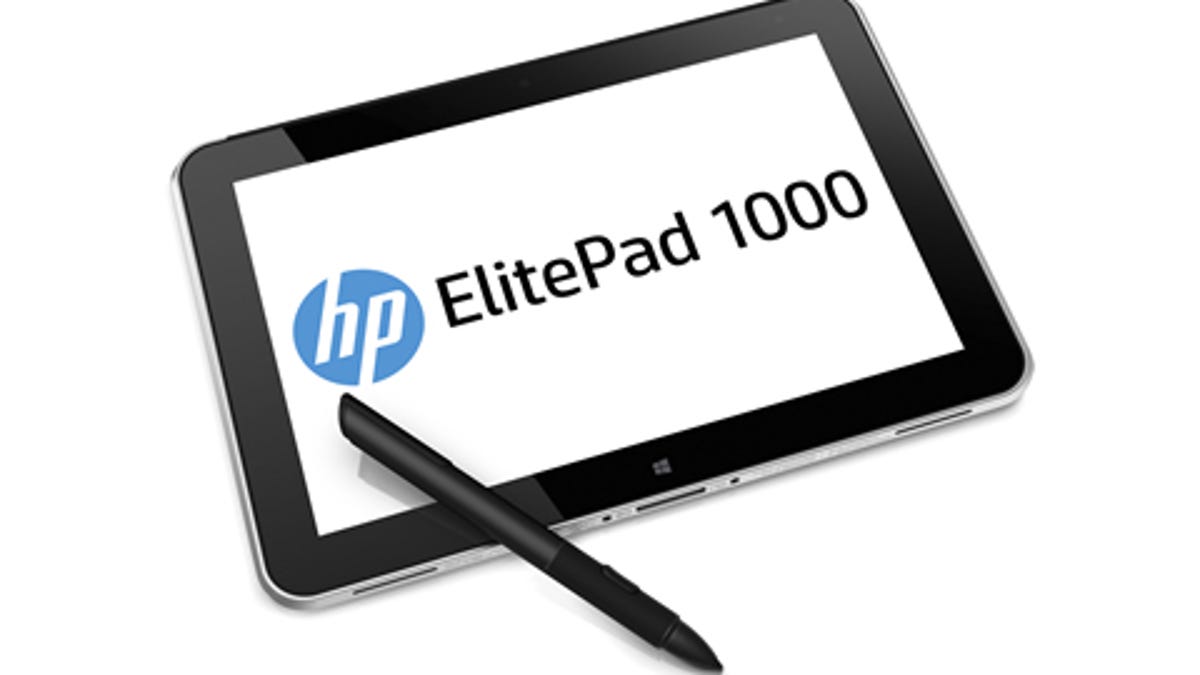First of 64-bit Windows 8.1 tablets arrives, this one from HP
Hewlett-Packard's latest tablet is described as the new "64-bit ElitePad" -- a sign that Windows 8.1 tablets running on Intel's Bay Trail chip will begin to go 64-bit.

Hewlett-Packard is one of the first to offer 64-bit compatibility on Windows 8.1 with a tablet using Intel's latest mobile processor. But others will follow.
On Sunday, Hewlett-Packard announced the HP ElitePad 1000 (PDF), which it describes as the "redesigned and upgraded 64-bit HP ElitePad." That tablet, starting at $739, will be available in March.
The ElitePad sports a quad-core Bay Trail processor, Qualcomm Gobi 4G LTE, 64GB or 128GB of storage, and a 10.1-inch 1,900x1,200-megapixel display.
And Dell will roll out updated Venue tablets with 64-bit mode turned on, Dell told CNET earlier this month.
To date, Windows tablets based on Intel's newest -- and redesigned -- quad-core 64-bit Atom processor from HP, Dell, Lenovo, Toshiba, Acer and others have run in 32-bit mode.
One of the most oft-cited reasons for going 64-bit is to address more memory, beyond the 4GB limit that's typical for 32-bit applications. But there are other reasons too.
"The pressure for 64 bit is pretty strong because IT organizations want to standardize on 64-bit images and 64-bit apps," Nathan Brookwood, principal analyst at Insight 64, said in an interview earlier this month.
There are a handful of Intel Haswell-based laptop-tablet hybrids, such as the Surface Pro 2 and certain Dell Venue 11 Pro models. Those devices already run in 64-bit mode but they are designed to be more laptop than tablet and typically are heavy and thick, pushing the boundaries of what is considered a tablet design.
The race to 64 bit in mobile devices has taken on new urgency after Apple announced the 64-bit A7 processor powering its iPhone 5S, iPad Air, and iPad Mini Retina last year.

